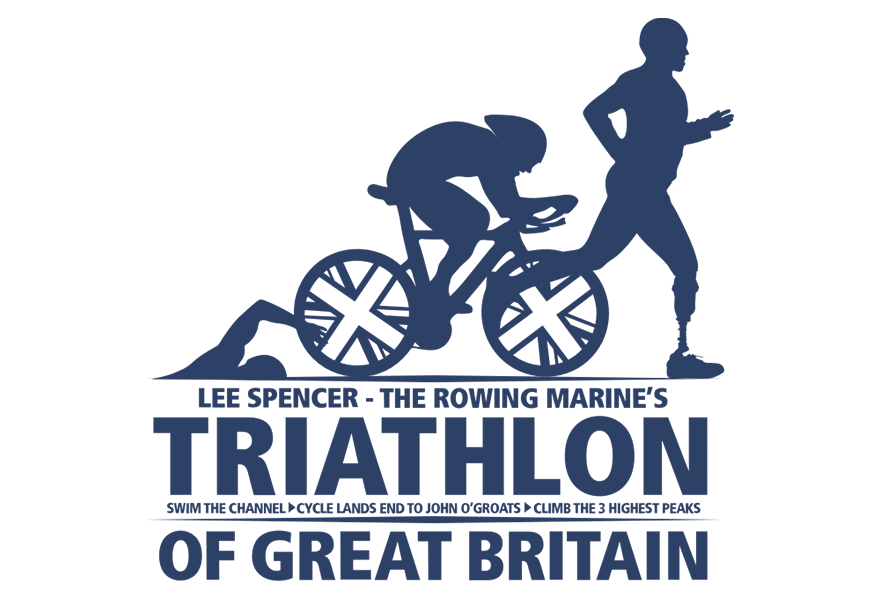Lee Spencer is a former Royal Marine commando. After surviving three operational tours of Afghanistan unscathed, he was hit by a car and lost his right leg while assisting a crashed motorist on the M3. Although his right leg was severed, he was able to instruct bystanders on how to tie a life-saving tourniquet while awaiting paramedics.
"I realised that if I didn’t grab this opportunity to do something that I believed was incredibly worthwhile, I might never get the chance again."
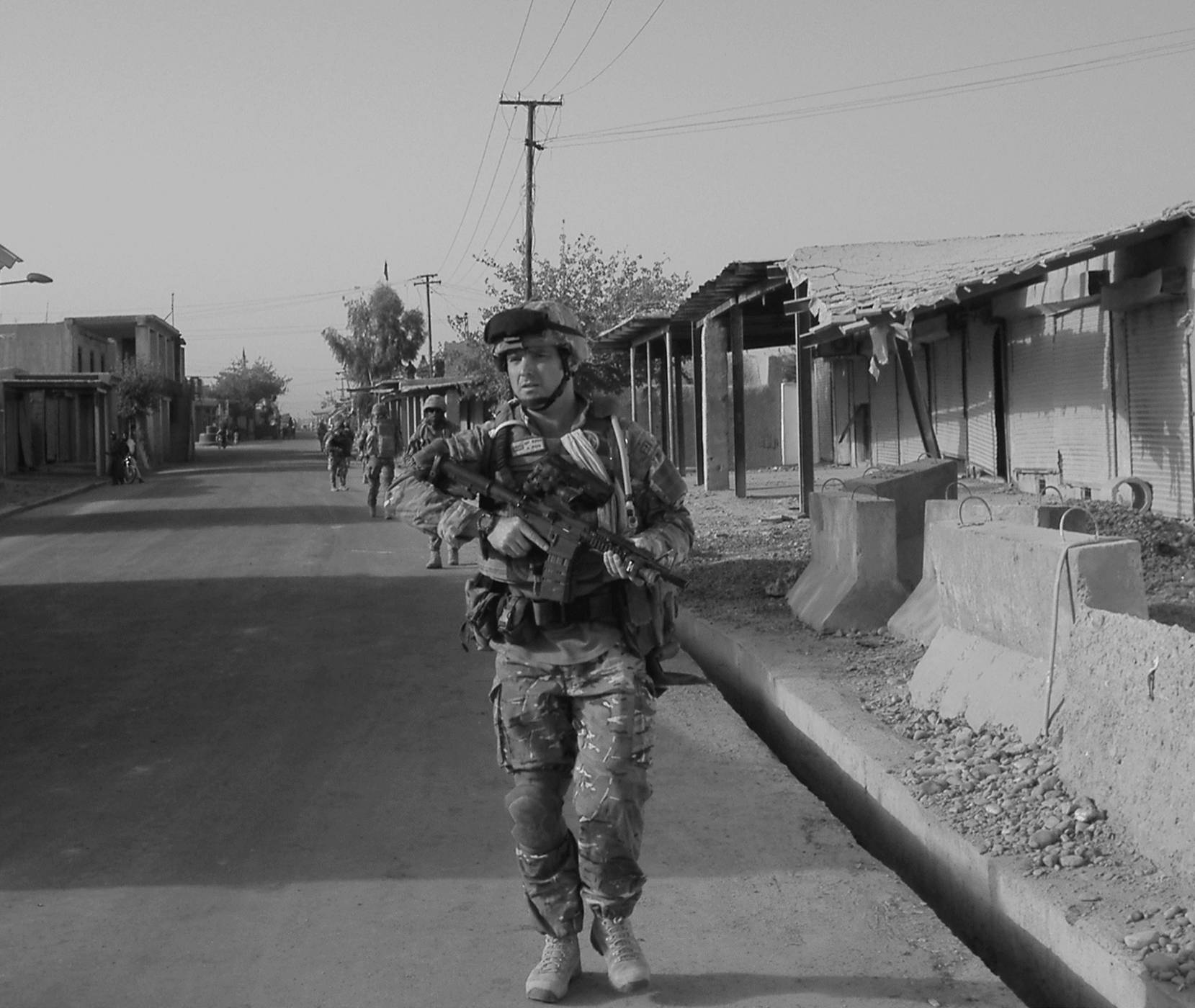
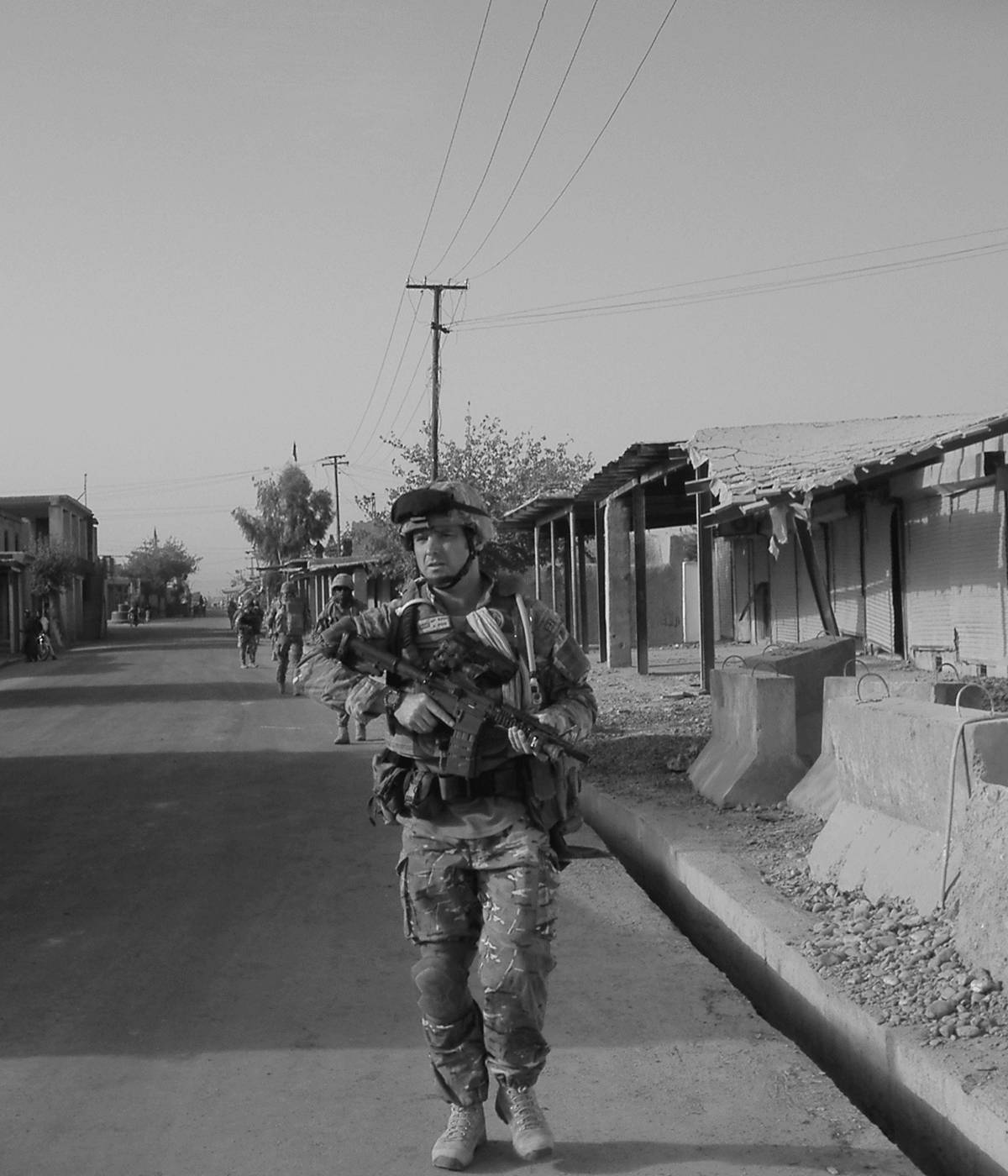
In 2014, I was a serving Royal Marine and a volunteer for Special Duties, (not Special Forces - the difference matters). I defined myself by my physicality. When I lost my leg, I believed that the person I was, had gone. I was no longer that person. I was now a disabled person and would have to redefine who I was within the parameters of disability. Through rowing the Atlantic the first time, I not only realised that I was still the same person, but also realised that I was wrong to try and define myself by my disability.
It made me start to question how we in society tend to define disabled people by their disability and how in comparison, able-bodied people are not defined by something that can’t do well. It’s really that simple. I’m not trying to prove that I’m not disabled, because I clearly am - ask me to count to 16 without using my nose. It just doesn’t define who I am. Losing who I was when my leg fell off and then rediscovering that sense of self halfway across the ocean, was an incredible insight into the importance of identity. We all have one and we should all have the opportunity for that identity to be a positive one.
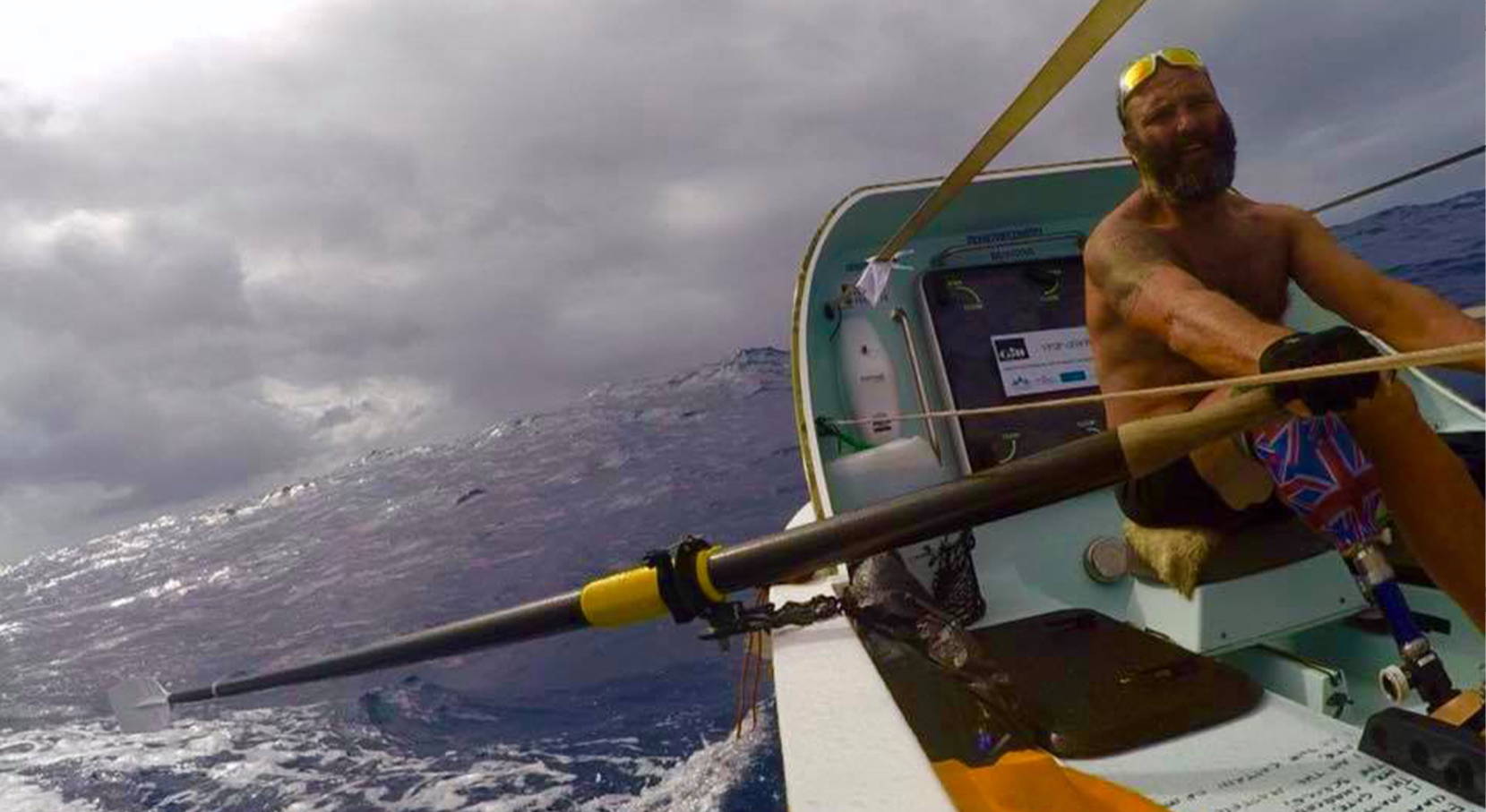
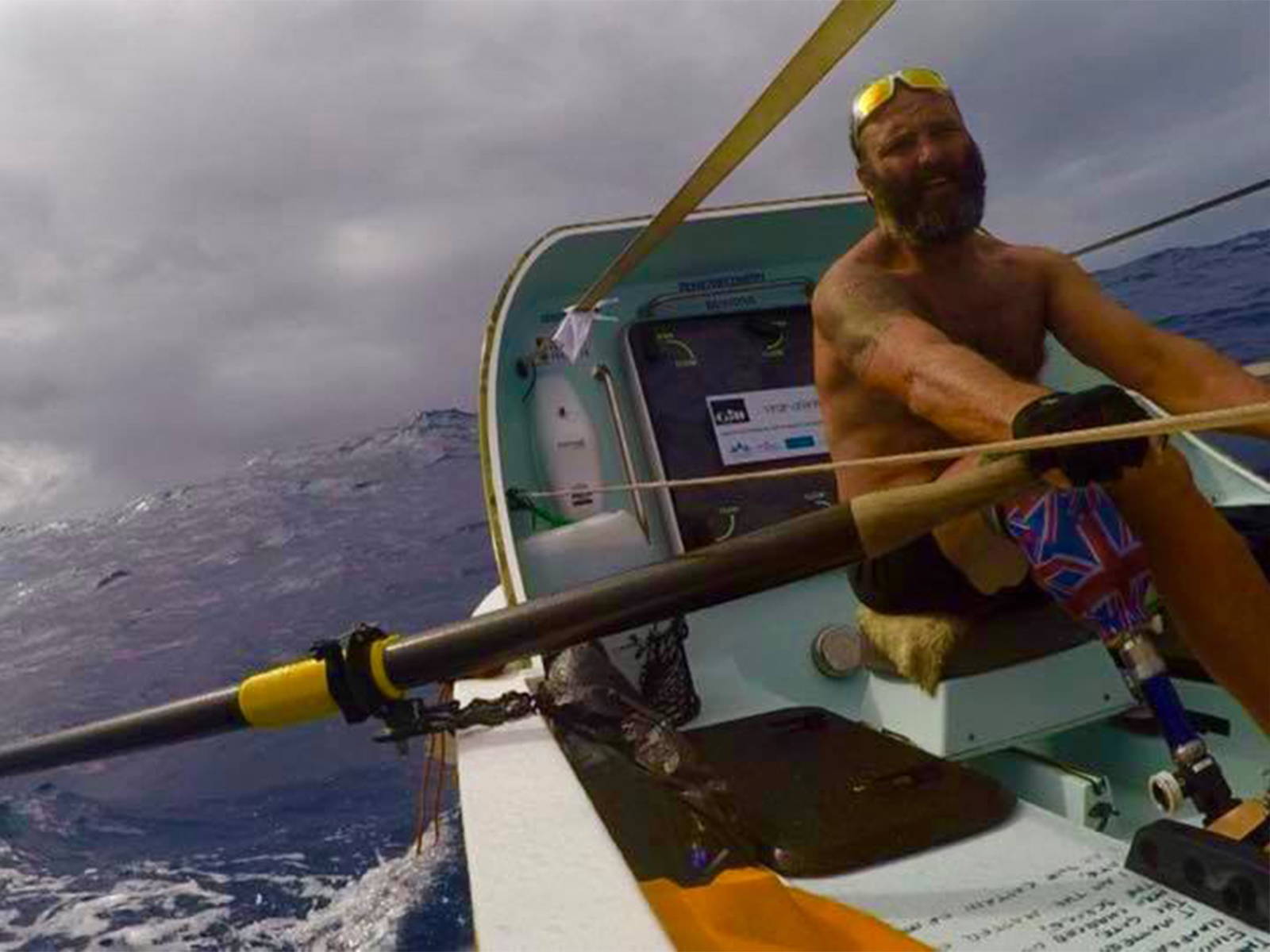
I often see a misplaced sense of sympathy from able-bodied people towards me. Disabled people share a difficulty in normal everyday actions, but that doesn’t mean we’re not living our best life. However, it’s hard to be annoyed at someone who often only wants to help.
In January 2014, on a foul, stormy night on the M3 motorway, I fought with every scrap of my being to stay alive. When I woke up the next morning in hospital, I was elated. I had come within a whisper of death, and I knew how lucky I was. Since that moment, I have realised how fortunate I am and how precious every moment here is.
I thought that the solitude would be hard to deal with, as I love being in company and I much prefer to share experiences. But it wasn’t a problem. In fact, I rather enjoyed being on my own and that surprised me. I loved the simplicity of just me, the oars and the ocean. There were times when the nearest other human was in the International Space Station. And then the big seas came. Towards the middle of the row, I was hit by huge waves that battered my small rowing boat, Hope, and it often felt that I was on the edge of disaster. The fear crept into every corner of my being. There was no escape from it and I had to develop coping mechanisms to take the edge off the fear. It was at times unbearable. I have been to war four times, I have been in tricky situations and had to fight for my life on a few occasions. But fear when you are part of a team and fear when you are completely on your own are two different things. One is very manageable; the other is horrific.
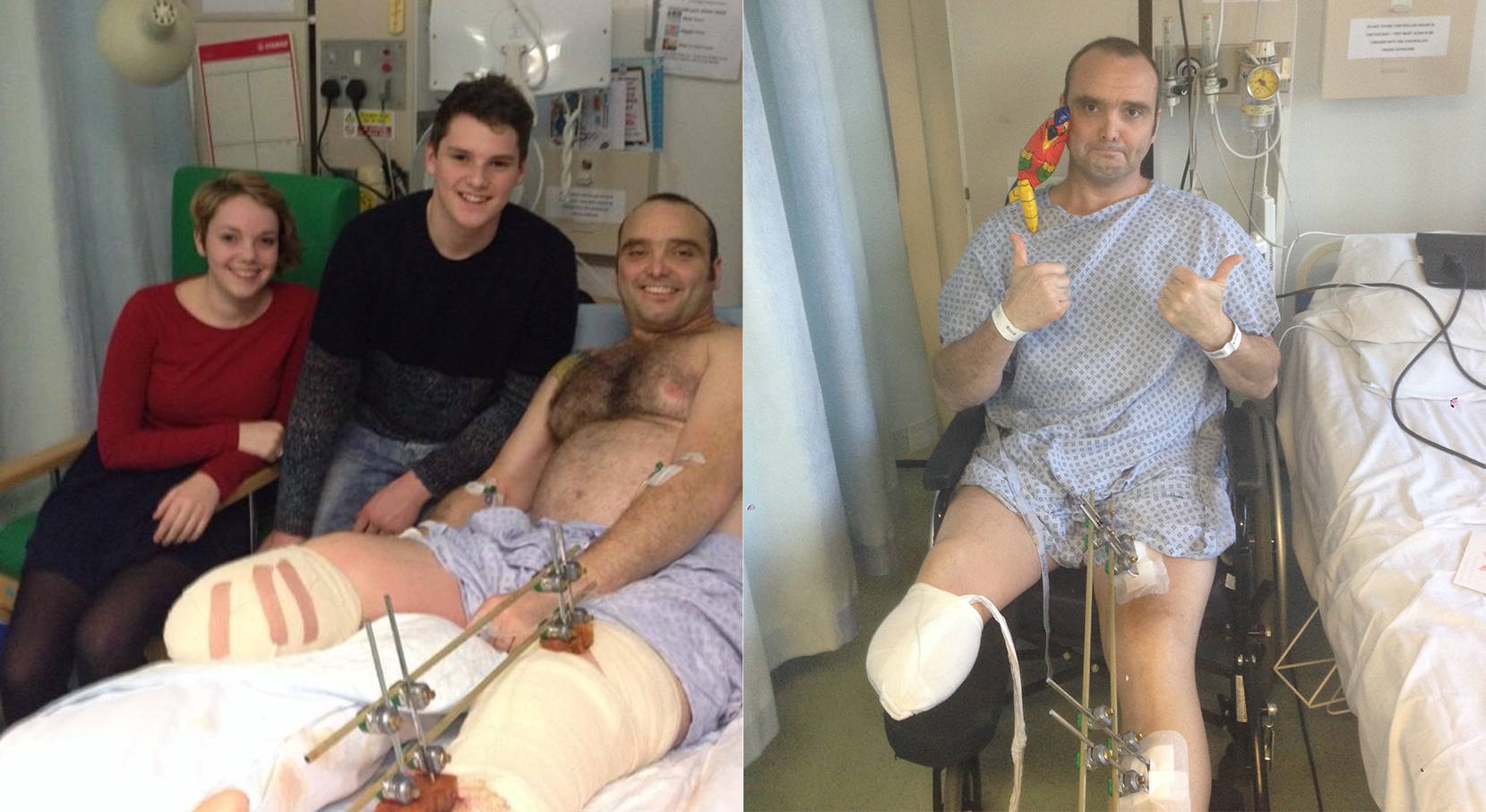
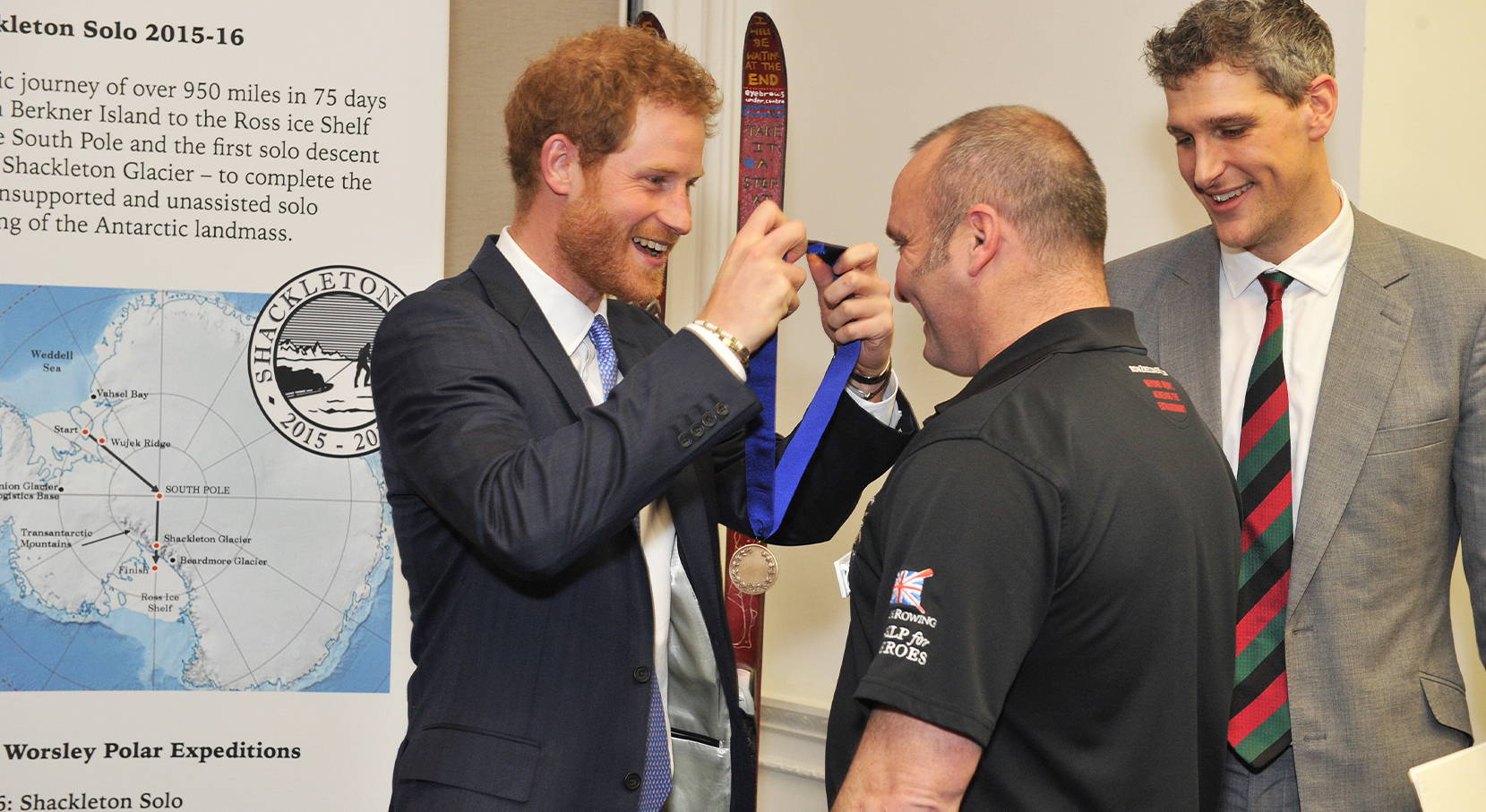
I was chased out of Portugal by a very experienced ocean rower called Ralph Tujin, who set off a couple of weeks after me on the very same record attempt. I kept imagining breaking the able-bodied record that had stood since 2002, and then immediately handing it over to Ralph. That thought drove me through every rowing session. I rowed as hard as I could and then collapsed exhausted in the cabin, trying to rest before my next rowing session. In the end, Ralph came into the Canaries to charge his batteries, and never came back out. But I kept the same pace, by then almost from habit.
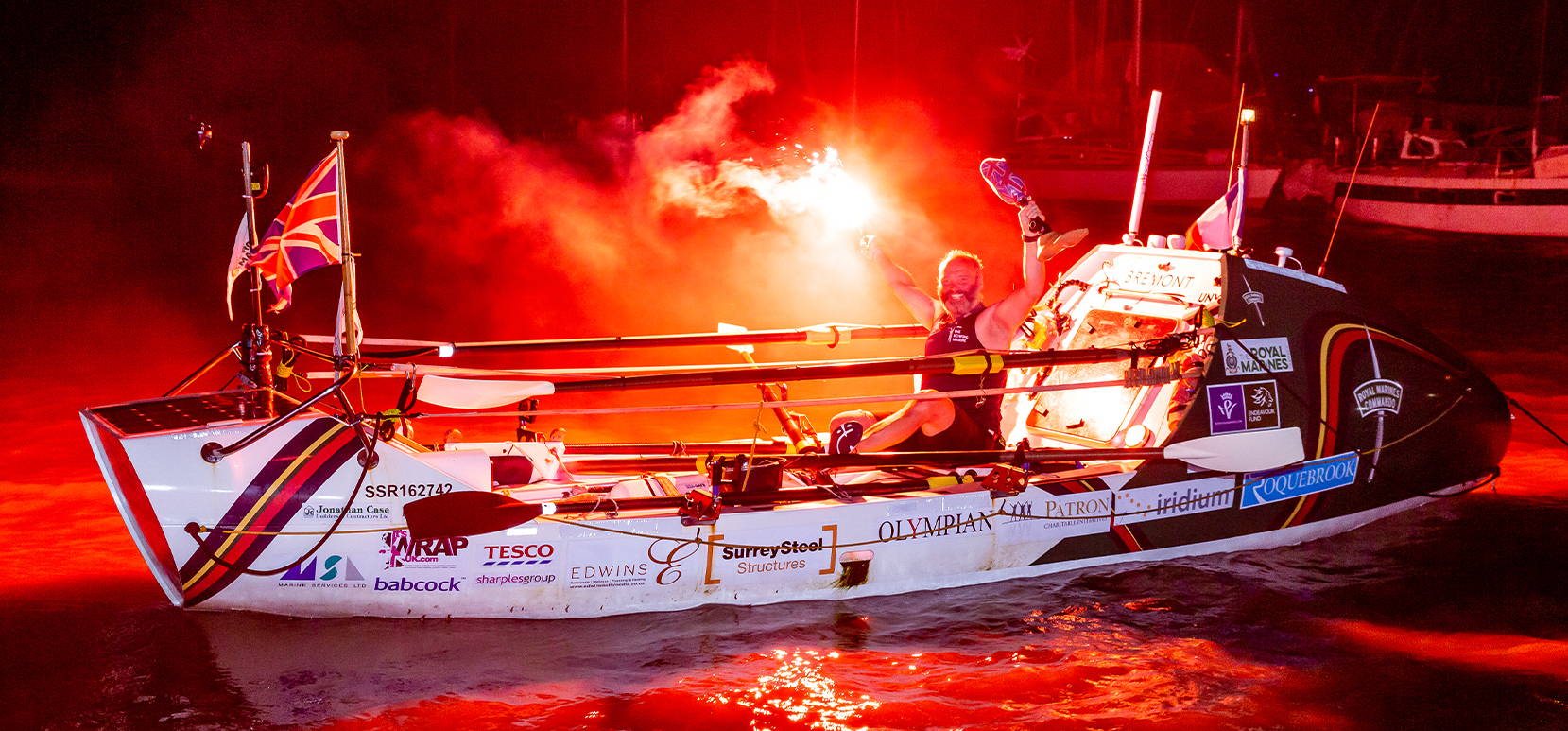
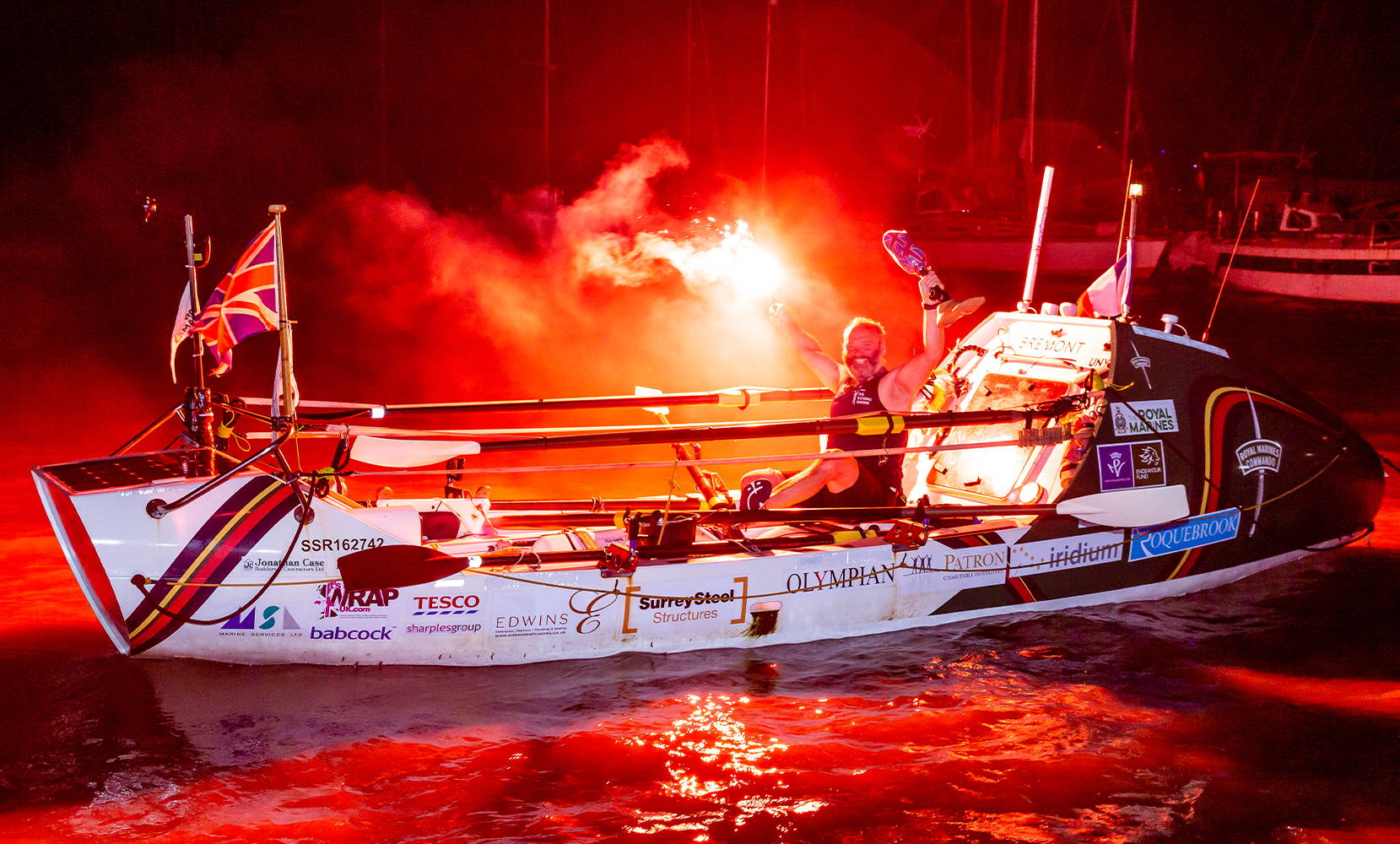
Physical fitness and fortitude are very different and it’s possible to have one without the other. I wasn’t physically fit it terms of VO2 Max, or even rowing fitness before I started rowing across the Atlantic solo. But I knew I had the physical fortitude to keep going when required. Even early on in the row, before I was physically conditioned to rowing long periods, I had to row for nearly 18 hours solid, to clear the shipping lanes to the southwest of Portugal.
I think that the difference with psychological fitness and fortitude is that they cannot exist without each other, and you cannot have physical fortitude without both psychological fitness and fortitude.
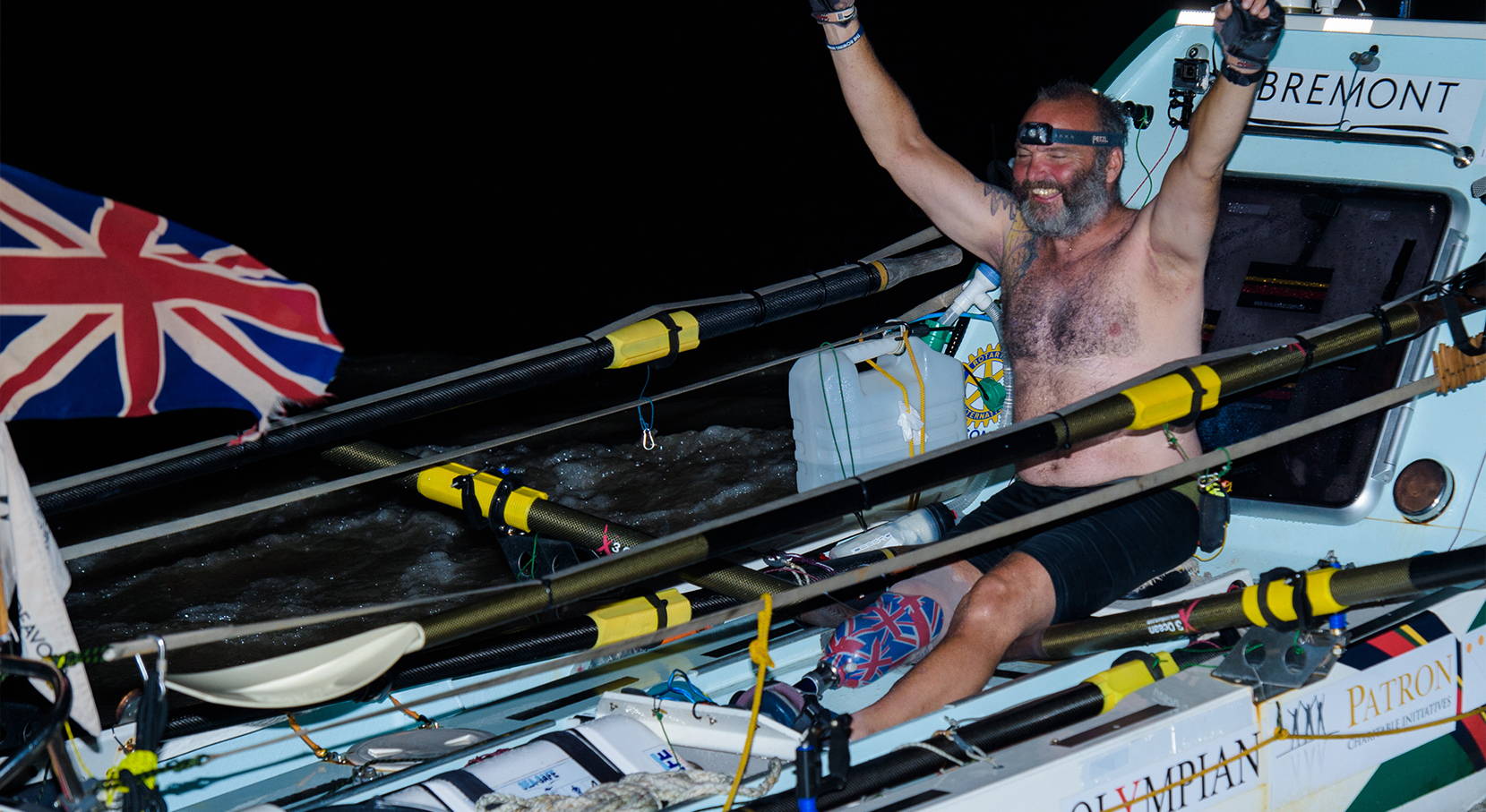
Unlike physical attributes which are part natural ability and partly acquired through training, mental fitness is almost exclusively attained through practice and training. People that are naturally gifted physically, can often have a high level of self-belief. Also, some people can be stubborn. It's important to make the distinction that neither confidence nor stubbornness are the same as mental fitness. Mental fitness is the ability to force your heart, nerve and sinew to continue serving you, regardless of physical pain and fatigue. To push yourself beyond what you thought was possible.
When I was in training for the Royal Marines, there was an exercise that taught me how to push through where I thought my limits were. It was a joint navigation and survival exercise called Running Man. It started by being placed in a survival situation, then the navigation exercises began. After the first few, I could feel the physical exertion without any fuel begin to take a massive toll on my body. On the second or third day, we were tasked with another route to navigate. I genuinely thought that I wouldn’t be able to complete it. It looked too far for how I felt. It was quite matter of fact. I could feel that I was at the absolute edge of what was physically possible, and I wondered how I was going to complete it. A few hours later we walked back into the wood and settled back around the fire. I was amazed that I had completed this latest leg, but was absolutely sure that that was me now at my limit. I thought I knew my own body and I felt that I had absolutely nothing left to give. Later that evening, the training team came in and briefed us on the coming night’s exercise. And again, I made it back into the wood, settled around the fire, totally amazed that I had made it. The next morning brought another exercise. ‘Surely’, I thought, ‘I can’t do this one as well’, but a few hours later I was back around the fire. At that moment, I realised that I didn’t know what I was capable of. I thought I knew where the end point of my endurance was, but realising that it was nowhere in sight, completely changed the way I saw myself. Realising that I don’t know what I am capable of, has stayed with me to this day. I’m still pushing the boundaries, searching so far in vain, for that end point where either my body or my spirit says, ‘this far and no more’.
"I thought I knew where the end point of my endurance was, but realising that it was nowhere in sight, completely changed the way I saw myself."
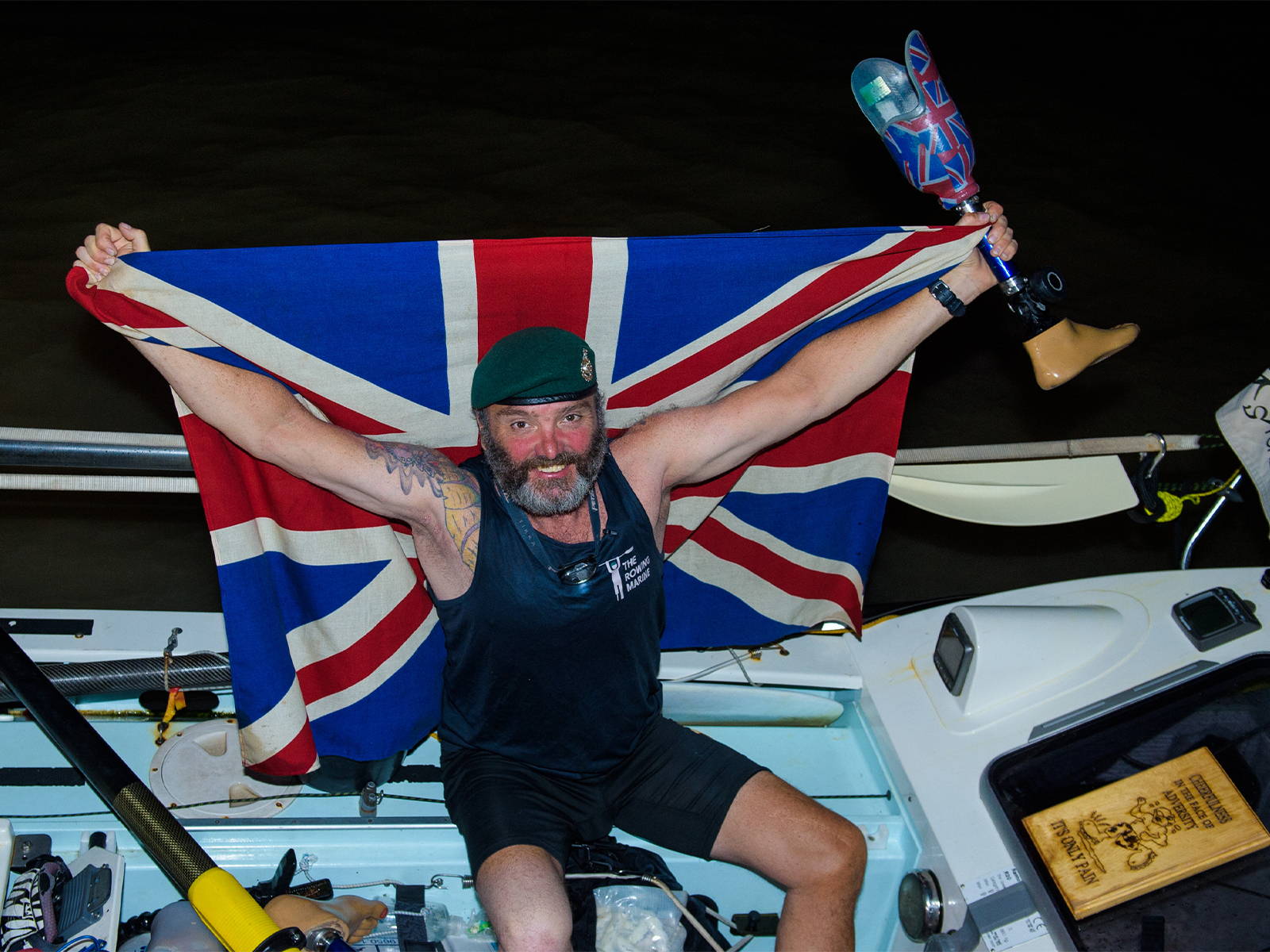
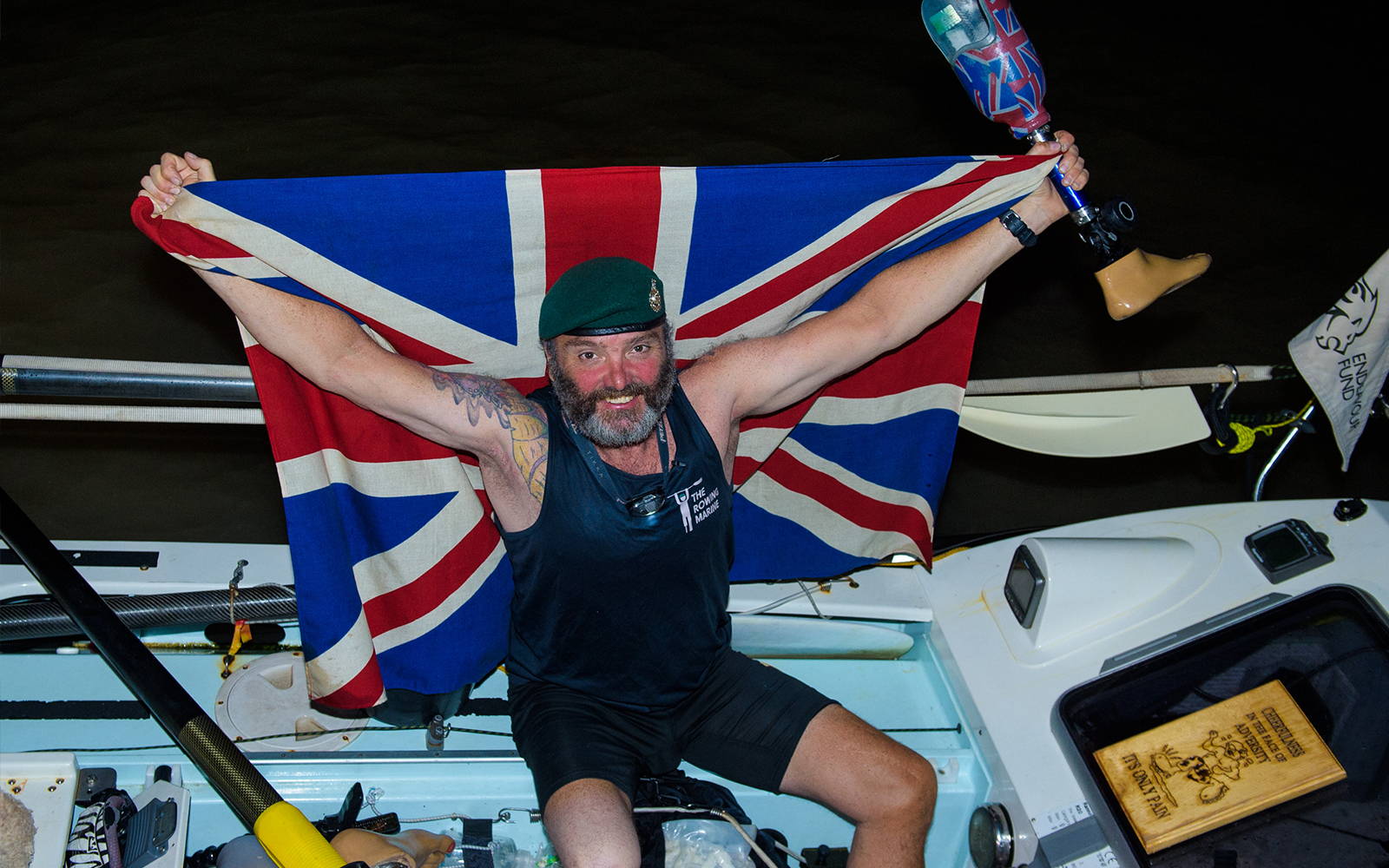
I had the idea in the ICU the day after I lost my leg. I was thinking about the future and wanted to challenge myself in my new reality of being a disabled person. I thought about a marathon first, then wondered about the Channel, thinking swimming would be easier with only one leg compared to running. I then wondered about cycling LE-JOG, not even knowing if it would be possible. I then thought about The Three Peaks and realised that all three challenges taken together made up a triathlon. Rowing oceans got in the way and then Covid, but now I’m finally getting round to doing it.
Swimming, swimming and more swimming. The crux of the challenge is getting across the Channel. I’m not a swimmer of any note. I’ve never competed at any level, so have really started from scratch. Also, it’s a one-shot challenge. I can’t stop halfway across for a breather. Once I start, if I even touch the support boat, it’s over. Everything else I know I can do, it just depends on how long it’s going to take me. I’ve completed my mandatory six-hour swim at 13.9°C and I’m ready to go.
"keeping wounded and injured servicemen and woman in the nation’s conscience, reminding us all that there is a debt to pay, is what drives me."
If you’d asked me 10 years ago what I thought I might miss when I eventually left the Corps, I would have answered ‘camaraderie’, ‘excitement’ or something similar. Actually, what I miss now that I have left is doing something that matters. Having a purpose would have been furthest from my mind when I was serving, but it underlined everything I did. Having a clear purpose now, has definitely helped me transition into civilian life. Many veterans find that transition hard. Military service defines who you are in a way that no other vocation does. When that service comes to an end, the loss of identity can be difficult to deal with.
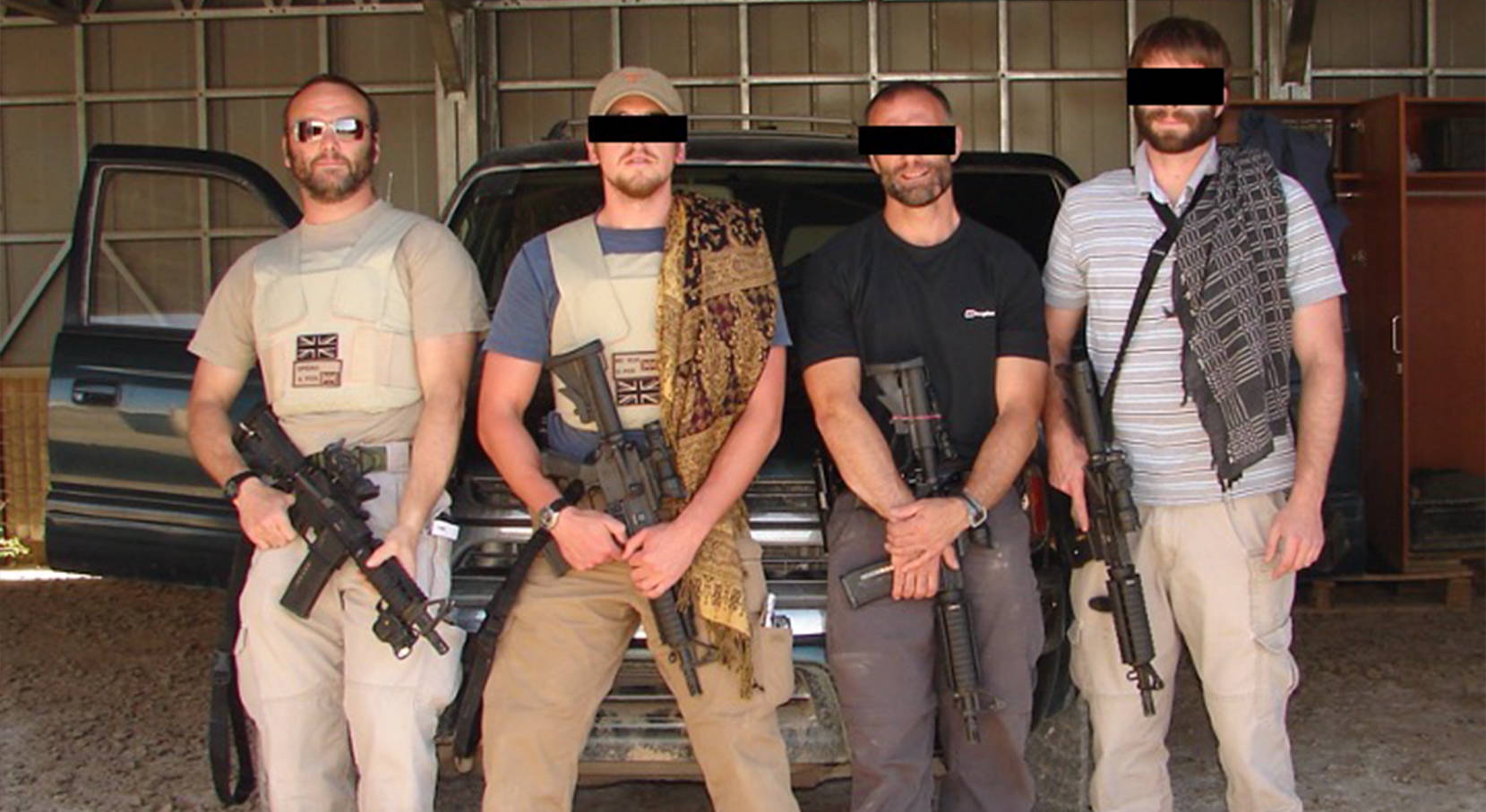
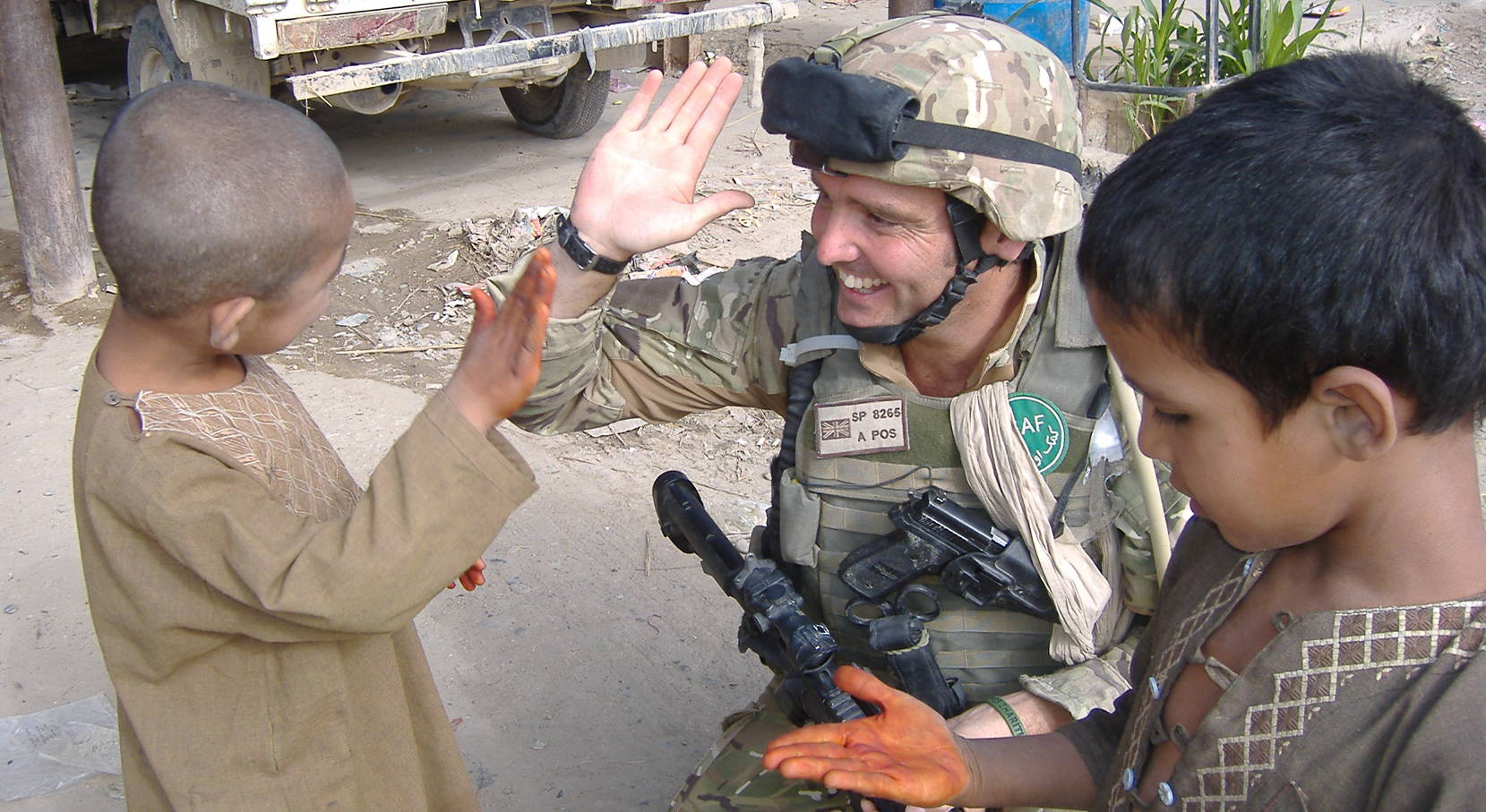
I rescued a dog in Afghanistan in 2008 and was asked by the charity that brought her back to the UK, Nowzad Dogs, if I would do some fundraising. I quickly got the bug and started raising funds for the Royal Marines Charity from around 2010. Why the Royal Marines Charity? Well, apart from the obvious connection, Royal Marines were used disproportionally more than any other cap badge in the recent campaigns in Iraq and Afghanistan, winning more gallantry medals and awards in the process. But that came at a price, with Royal Marines disproportionately suffering more life-changing injuries and deaths.
After I lost my leg and started on the recovery pathway, I came into daily contact with other Royal Marines who had had their lives shattered in the service of our country. It left me with a passionate belief that we owe those who have given, in some circumstances, everything they had, as well as their families, a life with dignity. I see it as a moral obligation. Along with proving no one should be defined by disability, keeping wounded and injured servicemen and woman in the nation’s conscience, reminding us all that there is a debt to pay, is what drives me. Helping repay that debt, giving those Royal Marines who have had their lives shattered by service, a life with dignity is what the Royal Marines Charity does so well.
